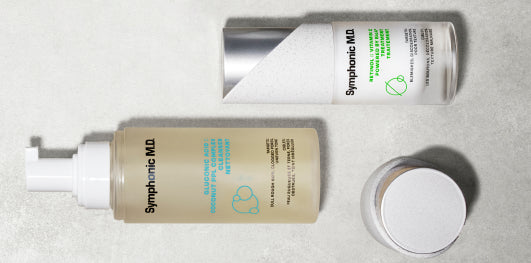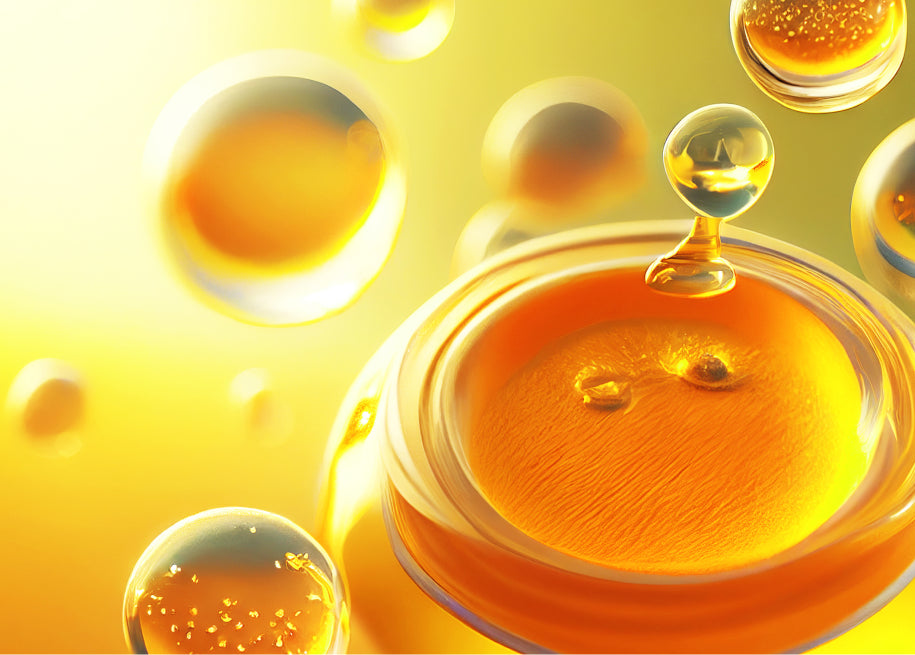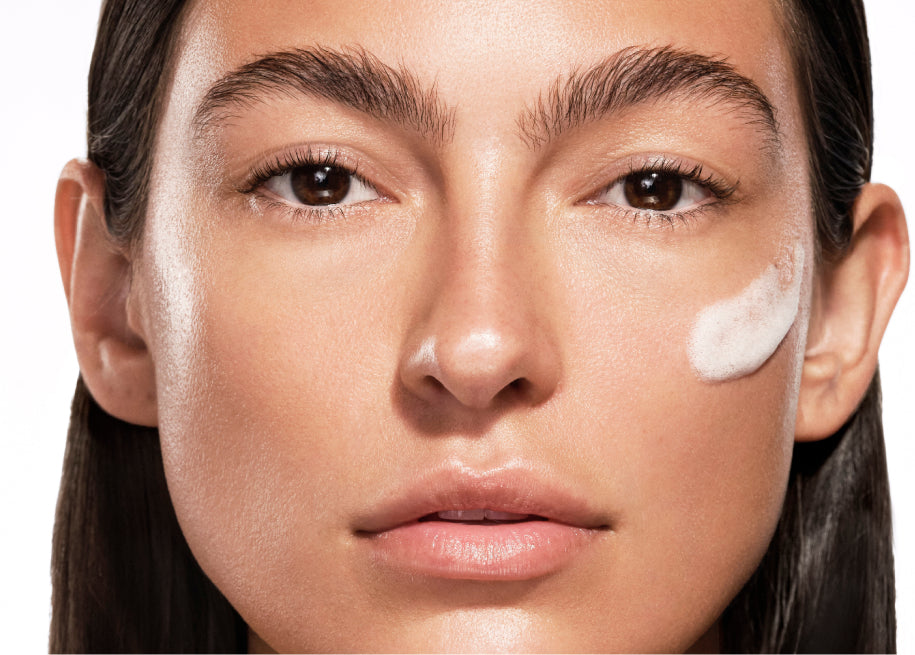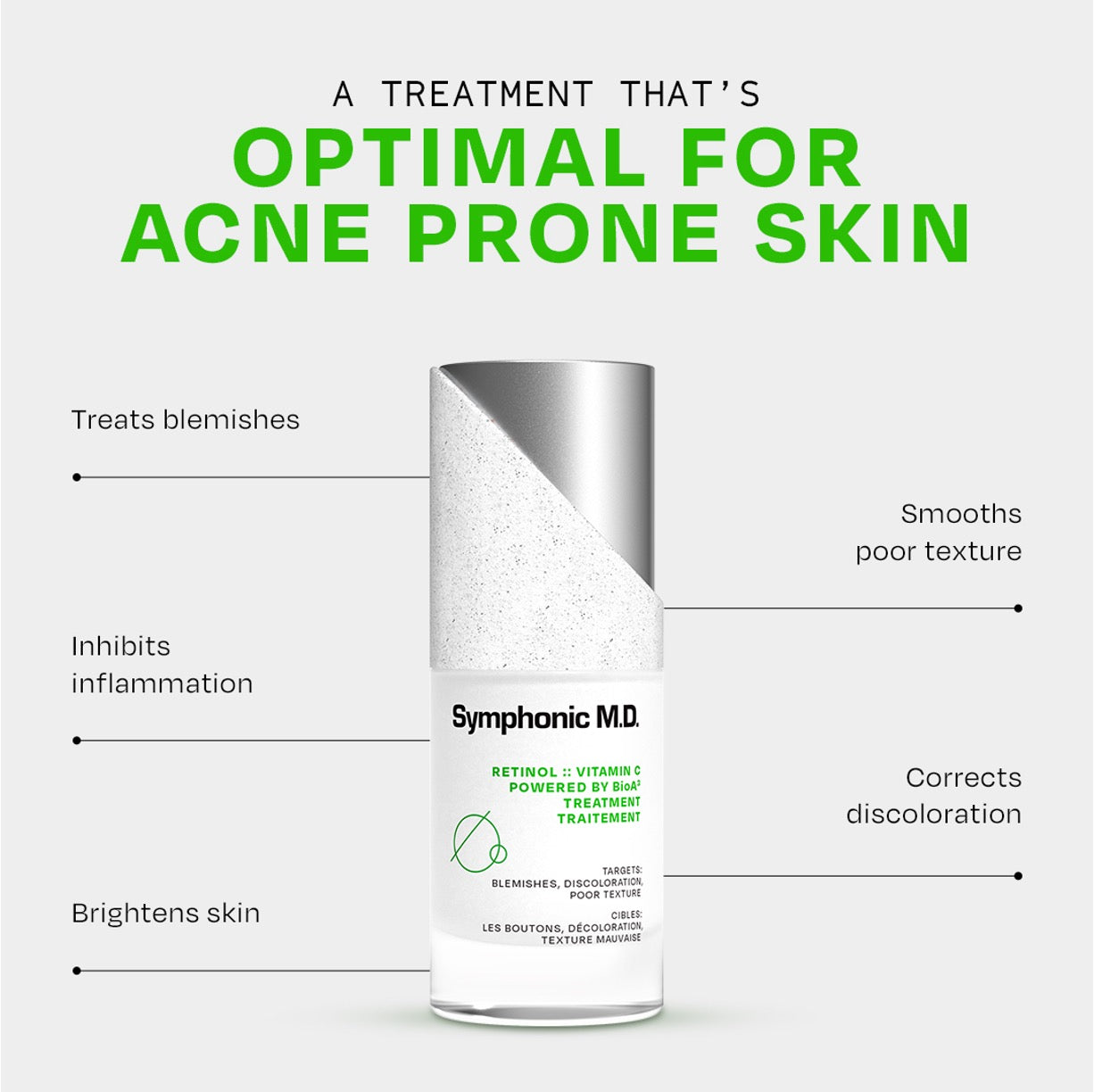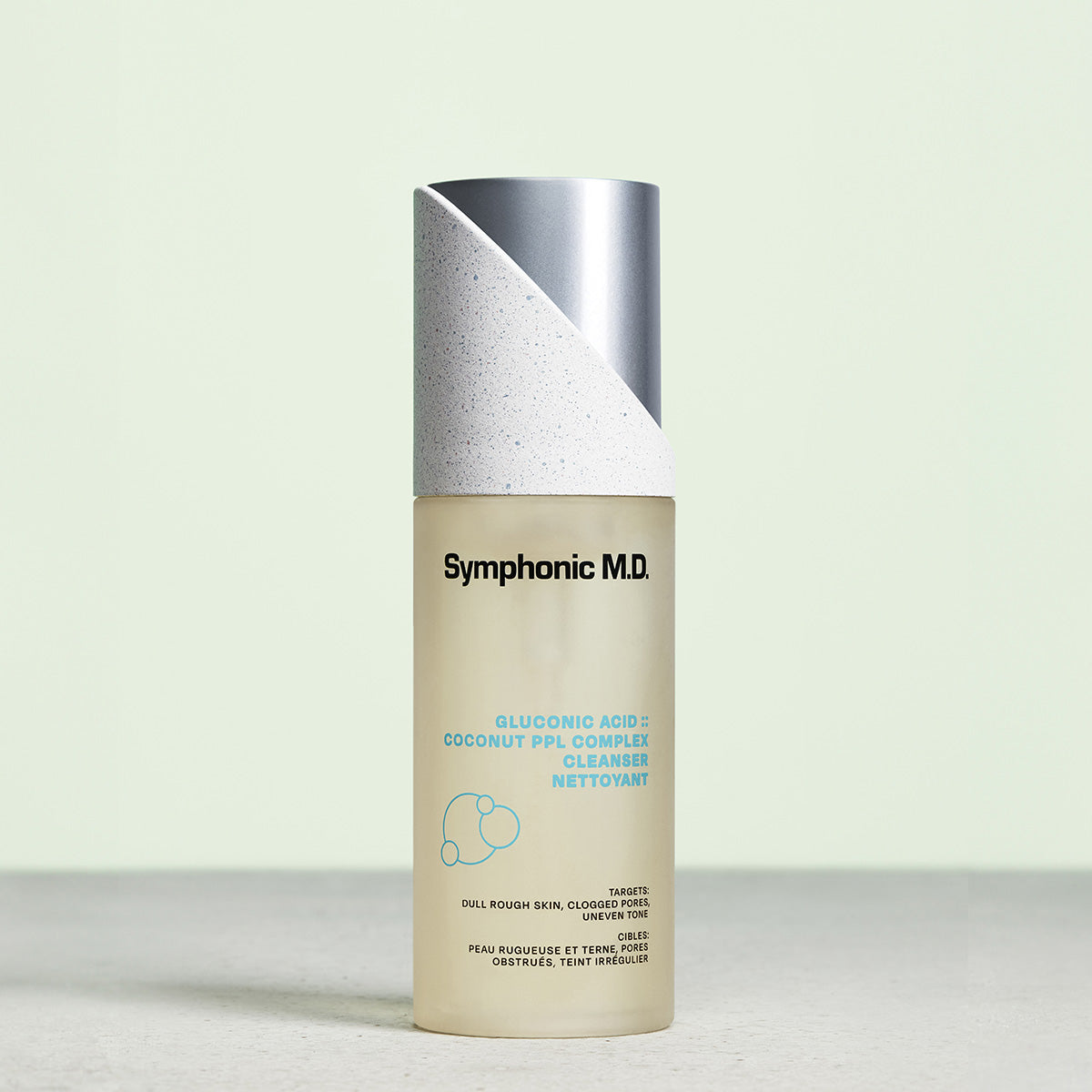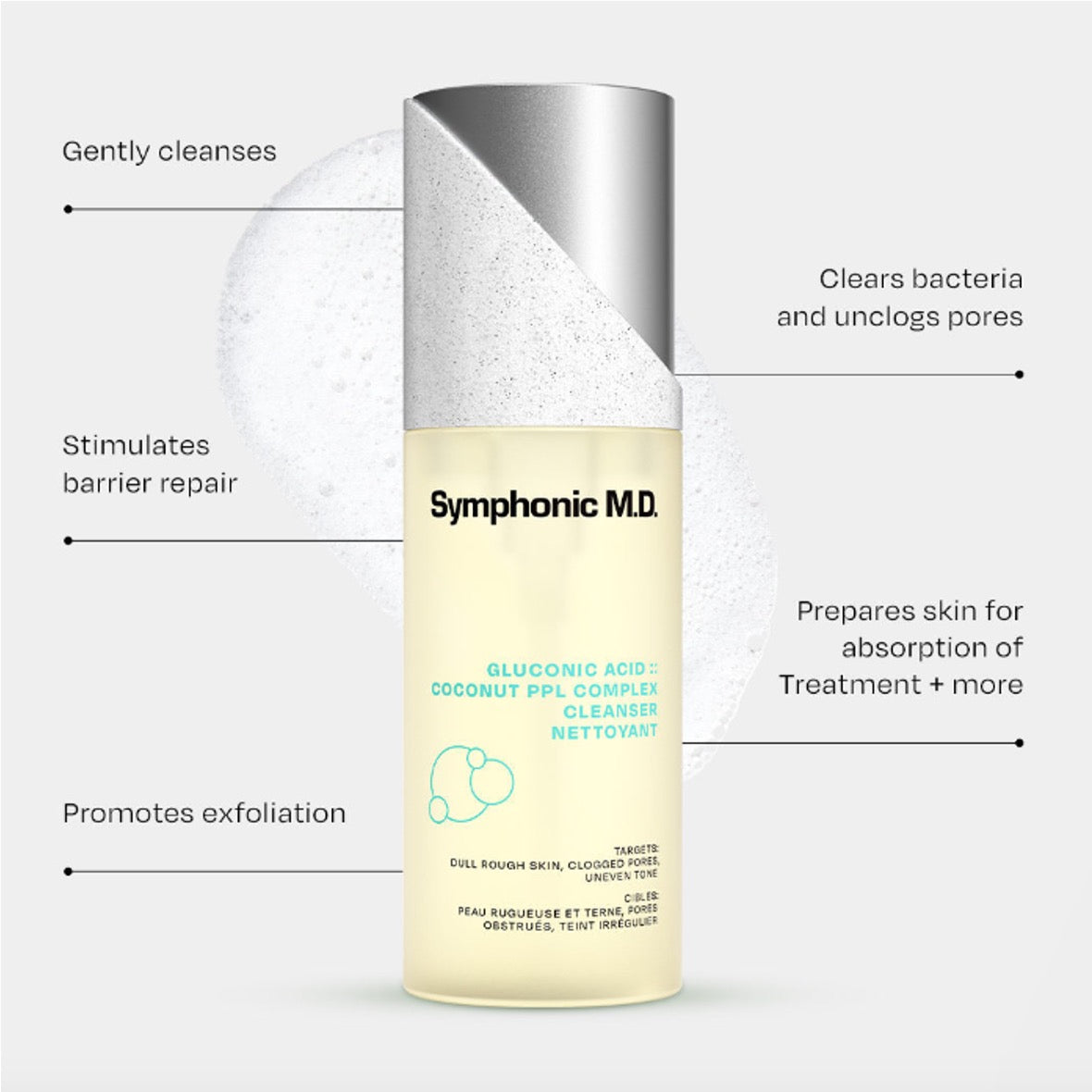Several skincare products claim to help reduce the appearance of acne scars, while others claim to remove them completely. One such product that many use to help with acne scarring is retinol. But before you start using it, or any other product, it’s vital that you understand the science behind its efficacy.
Ready to take a deep dive into the world of using retinol for scars and how it can be used to improve your overall skin texture? Let’s go!
What is acne scarring?
It’s happened to all of us - you see a pimple, start picking or squeezing, and think you’ve sorted it. But in reality, you’ve probably dug into your skin too much and have been left with a mark on your skin. This can result in acne scarring which is where permanent marks or indentations are left behind after severe acne breakouts. Acne scars form when the skin’s natural healing process has been interrupted, leading to scar tissue. This often happens when acne pimples and pustules are popped, picked, or infected.
While they are commonly found on the face, acne scars can appear anywhere on the skin that a breakout has occurred. Acne scarring often appears as raised or hollow areas of the skin, but can also manifest itself as red or dark spots, or uneven texture. The type of acne scars a person experiences will depend on their skin type and the severity of the breakout.
It’s important to note that acne scarring is different from ‘post-inflammatory hyperpigmentation’. This is what can occur after a breakout and usually appears as small brown marks on the skin.
Retinol is widely recognized as a product that accelerates cell turnover and boosts collagen, among many other skin benefits.
How to prevent acne scarring
Prevention is always better than cure, but we all know how tempting it can be to pick those pesky spots. To avoid acne scars, it’s important to be strict with yourself and take a proactive, yet diligent approach to your skincare routine. Here are our top tips for preventing acne scarring:
Cleansing
It’s not enough to simply cleanse your skin. You need to maintain a consistent and gentle cleansing routine that effectively removes excess oil, dirt, and bacteria from your skin. If you’re already suffering from regular breakouts, it’s important to avoid harsh exfoliants or abrasive products that could further irritate or damage the skin.
Aren’t sure which type of cleanser to use? Want to learn more about the importance of using cleansers? Dive into our comprehensive guide: What Is A Cleanser & What Does A Face Cleanser Do For Your Skin?
Resist temptation
If you’re looking in the mirror ready to pop or pick your pimples, don’t do it! The key step in acne scarring prevention is to resist the urge to pop or pick your pimples. Messing with your spots can lead to inflammation and increase the risk of infections and scarring.
Use topical treatments
Topical treatments can help to target and reduce acne, especially those with ingredients like salicylic acid or benzoyl peroxide. Your doctor could even provide a prescription for high-strength products that can reduce your breakouts.

Skin protection
We all know we should wear SPF every day, but protecting your skin from sun exposure is even more important when it comes to reducing acne scarring. UV rays can darken existing acne, making it more noticeable or prominent which could lead to more urges to pick and therefore scarring. You should apply a broad-spectrum SPF of 30 or higher to prevent skin damage.
How to reduce acne scars
If you’ve been unable to prevent acne scarring, it’s possible to reduce the appearance of acne scarring. To reduce scars, we recommend a combined approach focusing on effective skincare, improved lifestyle habits, and medical treatments (if appropriate).
One of the first products you can use to reduce acne scars is an exfoliant. However, we know that harsh exfoliation and scrubbing can irritate the skin and result in further damage or increased acne. Gentle exfoliants that remove dead skin cells and promote skin regeneration, without damaging the skin are good options. Skin-soothing polyhydroxy acids (PHAs) are gentle and a good first step.
Retinol is widely recognized as a product that accelerates cell turnover and boosts collagen, among many other skin benefits. With the ability to increase cell turnover, using retinol for acne scars can be effective in reducing their appearance.
For severe cases of acne scarring, we suggest speaking to a healthcare professional or dermatologist. They can recommend a course of treatments based on your specific needs to get the best results. Some options might include laser therapy, chemical peels, topical high-strength creams, and micro-needling.
What is Retinol?
Retinol is derived from vitamin A and is widely used in skincare for its potent anti-aging properties. It has an innate ability to boost collagen production and promote cell turnover, leading to younger and healthier-looking skin.
Retinol works by penetrating the surface of the skin and binding to surface receptors. This triggers a series of biochemical reactions that can help to improve skin texture, reduce the appearance of fine lines and wrinkles, and even out skin tone. This is where it can be particularly beneficial for those with acne scars.
How to use retinol
Retinol is a strong product, so it’s important to err on the side of caution when you start using it for the first time. Before you begin, it’s a good idea to do a patch test and wait 24 hours to see if you have any reaction.
If you’re experiencing any dryness and you’re using a serum retinol, try mixing it with a thick moisturizer to soften the delivery of the product while your skin builds up its tolerance.
If your patch test was ok, you can gradually incorporate retinol into your skincare routine. During the first couple of weeks, you should use retinol in the evening every few days. Once your skin starts to build up tolerance over the weeks, you can start to increase your usage to every other evening, and eventually every evening.
When using retinol, it’s important to pay attention to how it is affecting your skin, particularly in the early days. Consider how your skin is feeling, whether you’re experiencing any discomfort and whether you’re seeing any dry or more flaky skin than usual. If you’re experiencing any dryness and you’re using a serum retinol, try mixing it with a thick moisturizer to soften the delivery of the product while your skin builds up its tolerance. Alternatively, switch to a retinol cream for added moisture.
It’s worth pointing out that when you start using retinol, you could experience what’s known as ‘purging’. This is an initial flare-up of acne that will occur before your skin improves. It’s usually over within a few weeks, and after this, you’ll start to see the benefits of retinol.
Using retinol for acne
Retinol is widely known as an anti-aging hero product. But it’s also a favorite for improving post-blemish marks, hyperpigmentation, and acne scarring. This is because it effectively regulates cell turnover and unclogs pores, helping to improve overall skin texture and reduce acne breakouts.
In addition, retinol is a gentle exfoliant which means it can also help to remove dead skin cells, preventing them from clogging pores and causing inflammation.

Is retinol good for acne?
Retinol can be advantageous to have in your skincare arsenal if you suffer from acne. As it prevents blemishes and unclogs pores, it can both prevent and treat acne. Retinol works by shedding dead skin cells which minimizes the formation of spots and boosts collagen production, thus improving the appearance of acne and acne scars.
There are also anti-inflammatory properties in retinol, which means it can reduce redness and any swelling associated with acne breakouts. If you’ve never used retinol before but want to try it, we recommend consulting a dermatologist and starting off slowly so your skin can get used to it.
Research suggests that a concentration of 0.1% to 0.3% retinol is generally recommended to treat acne scars.
Using retinol cream for acne scars
While retinol can be used in various forms, retinol cream is particularly good for treating acne scars and is widely recognized for this. With a potent formulation that includes vitamin A derivatives, retinol helps to reduce the appearance of acne scars over time.
By using retinol cream for acne scars regularly, you could expect to fade hyperpigmentation and smooth out the skin’s texture to reveal a more even complexion. Another reason to use retinol in a cream form is the consistency of the product. As we’ve mentioned, retinol can make the skin dry when first used, so using it in a cream formation can help to lock in moisture while letting the retinol do its work.
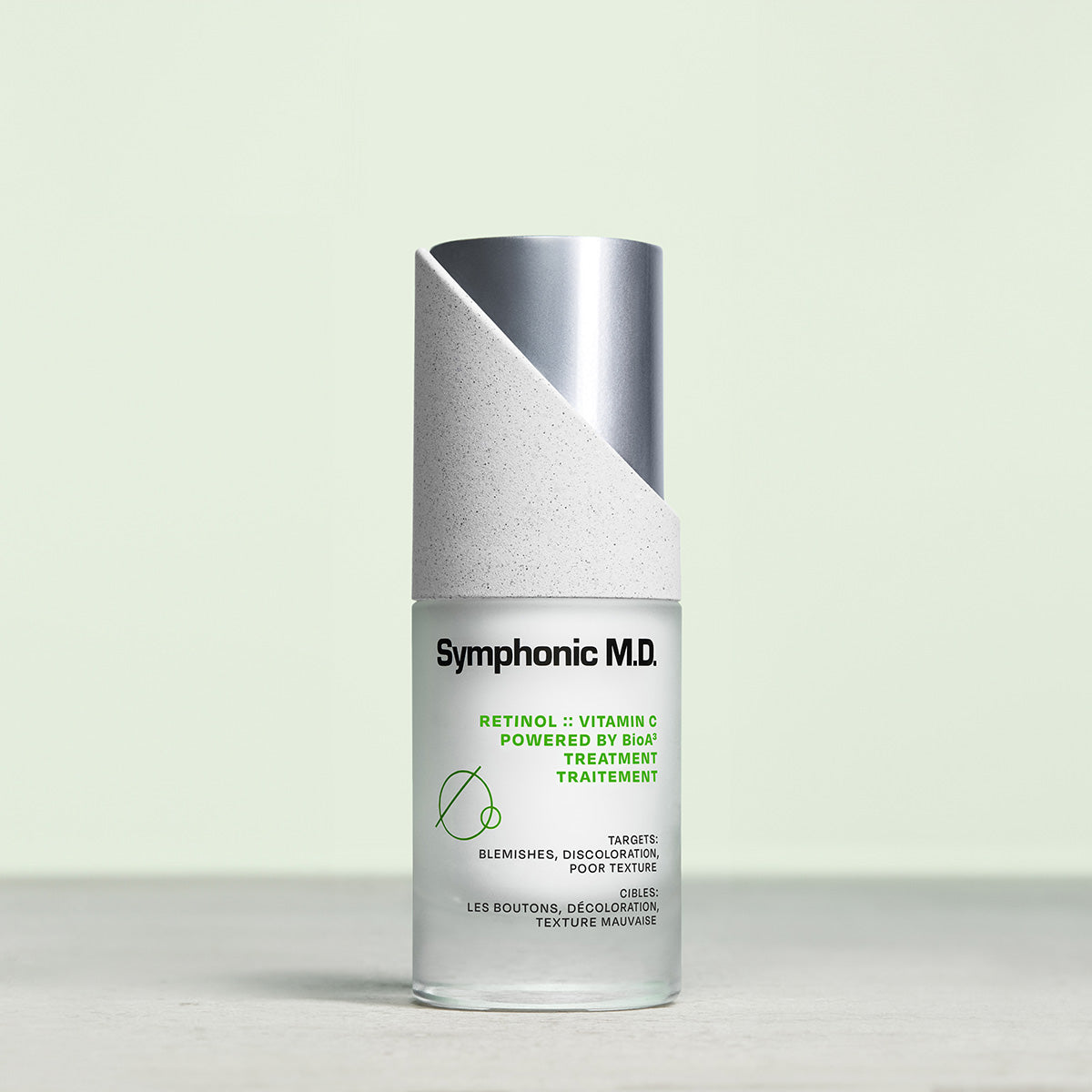
Retinol :: Vitamin C
This anti-inflammatory serum powered by BioA3 targets blemishes, tone, and texture — helping to clear bacteria and smooth skin without clogging pores.
How long does retinol cream take to work on acne scars?
Retinol, in any form, will not provide an instant or overnight effect. To be effective, it needs to be used over a longer period, which means patience and consistency are key when you start using it. Although retinol is a widely accepted method of reducing acne scars, its efficacy will depend on several factors such as the scarring severity, your skin type, and your skincare commitment.
Usually, it takes several weeks to see noticeable changes in the skin. If you have severe acne scarring, the results could take a few months. Being persistent and patient with the results is essential if you want retinol to work for acne scarring.
Best dosage for treating acne scars
As everyone’s skin is different, and as an active ingredient, the right retinol dosage can vary. The optimal dosage for effectively treating acne scarring should be considered carefully; a dermatologist or healthcare professional can usually help you determine the best dosage for your skin.
Research suggests that a concentration of 0.1% to 0.3% retinol is generally recommended to treat acne scars. This dosage ensures that retinol will be effective at treating acne scarring, without increasing the risk of unwanted side effects. However, as this is a moderate dosage, it’s a good idea to start with a lower-strength retinol and allow your skin to build up a tolerance before you move on.
If you have particularly bad acne scarring, using retinol for deep acne scars can take a little longer to see results. But trust the process and stick with it, and you’ll see results with persistent use.
How retinol works on dark spots caused by acne scars
In some cases of acne scarring, dark spots can also occur. Many people use retinol for acne dark spots and hyperpigmentation thanks to its ability to penetrate deep into the skin. As retinol accelerates cell turnover and promotes new cell growth, it targets hyperpigmented areas and gradually fades dark spots over time. Retinol also reduces inflammation and stimulates the production of collagen, which can also help to reduce the appearance of acne scars and dark spots.
What makes Symphonic M.D.’s products unique for acne scarring?
Our Retinol :: Vitamin C Powered by BioA3 Treatment moisturizer is a super-smart formulation designed to help clear bacteria, reduce blemishes, smooth skin texture and tone without clogging pores. Its uniqueness comes from the soothing agents that calm irritation while rehydrating the skin from the often harsh effects of retinol after first use.

Retinol :: Vitamin C
This anti-inflammatory serum powered by BioA3 targets blemishes, tone, and texture — helping to clear bacteria and smooth skin without clogging pores.
Additionally, our moisturizer successfully combines vitamin C and retinol into a stable skincare product, which has never been done before. Extensive clinical trials have shown that there are minimal to no side effects, even for those with sensitive skin.
The active ingredients in our products include Retinyl Sunflowerate and Tetrahexyldecyl Ascorbate. The former is a pro-retinol derivative composed of retinol and sunflower fatty acids. It’s bio-based, formulation-stable, and non-irritating which means it can successfully unclog pores, and gently exfoliate and smooth skin to treat unwanted acne scarring.
Tetrahexyldecyl Ascorbate is a very stable oil-soluble vitamin C derivative. It’s a powerful antioxidant with anti-inflammatory and anti-acne properties, as well as a lightening agent. This moisturizer can help target acne scarring while also acting as a preventative measure for future acne scarring with its ability to refine skin texture and clear existing blemishes.

Other ways to treat acne scarring at home
While retinol is highly effective when it comes to treating acne scarring, there are other alternatives you could try too, from natural remedies you can use at home to professional or medical-grade treatments.
Natural remedies
When it comes to treating acne scarring at home, the key is to look for products with anti-inflammatory properties that also soothe the skin. Natural remedies such as aloe vera and tea tree oil have these properties and can be effective.
Regular exfoliation can improve the texture and tone of the skin, helping to treat acne scars and decrease their visibility. It’s important to use a gentle exfoliator that will improve the skin without causing more damage.
Home remedies can improve the appearance of acne scarring, but may not be as effective or long-lasting as more professional treatments or products. It’s always advisable to consult a dermatologist or healthcare professional to assess your acne scarring and skin needs.
Chemical peels
Using chemical peels to improve the skin’s tone and texture is not a new concept, but at-home use of chemical peels is gaining popularity as a treatment for acne scars. However, it’s not as simple as applying a moisturizer or exfoliator to your face. You will need to apply an acid solution to the face, which will deeply exfoliate and promote cell turnover.
The strength and concentration of your chemical peel should be carefully determined to avoid adverse skin reactions or further skin damage. It’s essential that you consult a dermatologist or skin care professional before using a chemical peel at home, and approach this procedure with caution. You should also ensure you follow the manufacturer’s instructions and conduct a patch test before applying it to your whole face.
Vitamin C
Vitamin C is a powerful antioxidant that is believed to reduce hyperpigmentation, which could also make it an effective treatment for acne scarring. It improves hyperpigmentation by promoting collagen synthesis which helps to improve the appearance of the scars, making them less visible. However, it’s important to note that scientific evidence to support the efficacy of vitamin C for acne scarring is limited.
Adding vitamin C to your skincare routine is easy as it’s available in a variety of forms, from serums to creams. As with any other at-home treatment, it’s vital that you consult with a dermatologist or healthcare professional to ensure your product is effective and safe.
LED light therapy
LED light therapy has shown promising results as a treatment for acne scarring. It works by stimulating collagen production and promoting skin healing, thus reducing the appearance of acne scars. There is a huge range of at-home LED light therapy devices and masks available, ranging from around $60 to over $1,000.
Like other acne scarring treatments, one should exercise caution when using a new product and follow the manufacturer’s guidance. Always speak to a healthcare professional who can advise you on the appropriate LED devices to use, and the recommended duration and frequency of the sessions.
The bottom line
When it comes to treating acne scarring, there are plenty of options to consider. Retinol can be a great choice if you have the commitment and persistence needed to include it in your skincare routine. It’s important to have patience with retinol as results can take a while to come to fruition.
Have other skincare concerns that need treating too? It could be worth considering our retinol and vitamin C moisturizer to help target multiple skin problems. This product is a great way to add retinol to your skincare routine with the added benefits of vitamin C.
Whatever products you choose, the key is to stick with it and follow the guidance set out by a healthcare professional. That way, you’ll be on the road to clear skin in no time!

